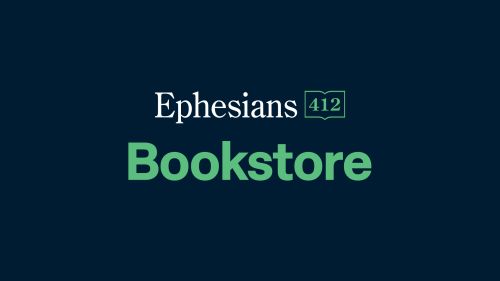The great English preacher, Charles Spurgeon once said: “Many books in my library are now behind and beneath me. They were good in their way once, and so were the clothes I wore when I was ten years old; but I have outgrown them. Nobody ever outgrows Scripture; the book widens and deepens with our years.”
Christians throughout the history of the world have come to appreciate this divine wonder that God has given to us in his word. It is alive and active, it is honey to those who eat it, sure footing to those who tread upon it and a light for those who need it. But for many sincere believers, reading the Bible can often be difficult.
All too often we either fail to plan, or we are intimidated by what we do read. If you’ve been tripped up by one of these, there are small steps you can take to know God better through Bible reading. Just in time for your New Year’s resolutions, we want to provide three key resources which will help you experience the wonder of God in his word.
A Simple Bible Reading Plan:
There are lots of great Bible reading plans and the best way to grow consistent in Bible reading is to make a plan. Last year we worked through the F260 Bible reading plan which was a five day a week plan that had us reading in every book over the course of the year. This year we are taking one step forward and picking a plan that will actually have us read the whole Bible in a year.
Many of you might be familiar with The Bible Project and their excellent videos. They have put out a Bible reading plan which takes you through the whole Bible once, and the Psalms 2.5 times in a year. The benefit of this plan is that it also includes helpful context markers of which part of the Bible’s storyline you are in, as well as linking to their own videos on genres and biblical themes.
You can access the PDF version of the plan here, or you can download their own app: Read Scripture. Inside the app you can select your start date (if you want to join with Sovereign Hope, we will start on January 1st) and find additional resources with ease. From this page you can also sign up for a weekly email from the Bible Project which sends you the weekly readings and reminders as well.
Bible Reading Groups:
To help us learn to read the Bible together we are going to continue to do our online Bible Reading Groups every Wednesday at noon via Google Hangouts. These meetings are meant to fit inside your lunch hour and in them we will read the daily text together and have a discussion on what it says about God, ourselves, and how we might apply it.
A Good Study Bible:
Sometimes when it comes to reading our Bible we can read it a bit too much like a text book. In this way study Bibles can sometimes be unhelpful for those who are prone to this error. In the end we can often look at God and theology like a science project instead of a person who knows us and wants to be known by us.
But for many of us (myself included, though I’m prone to all the errors above) study Bibles give us a little push where our wheels might have gotten a bit bogged down. While the Bible was clearly written by the prophets and apostles, and able to be understood by all people, there are some places in scripture where we often get bumped off track. Maybe it’s a tough issue, a difficult to follow story, or vocabulary you aren’t yet familiar with, but a good study Bible helps bring you a bit more clarity in places like that.
I use study Bible notes like a score board during a football game. When there are times when I feel lost or confused as to what is happening, I’m able to consult the notes and in a metaphorical sense they let me know some important thing: What’s the score? How much time is left? And who has the football?
Notes can help us understand texts which rely more closely on certain historical events that we may not be familiar with, or they can help us understand how any given text relates to the gospel event. I know for my own devotions, there are often times where there is just enough of a lack of clarity that my mind can’t really focus on what I read afterwards. A quick glance at the study notes helps me process through that so that I can get back to reading.
Here are some study Bibles that might help you. Since the translation we use at Sovereign Hope is the ESV, I’m only going to recommend ones based off that. But there are lots of good options regardless of your translation. Each of these are also available digitally via the ESV website and app.
The ESV Study Bible: One of the best all-around Study Bibles when it comes to practical and helpful notes on both theological and cultural issues in the biblical texts.
The ESV Story of Redemption Bible: While not as thorough as the former one, the Story of Redemption Bible includes notes and articles which help you understand the ways in which the whole Bible is telling one single story: the story of redemption. These notes, written by Pastor Greg Gilbert, help you understand the relationship that different parts of the Bible play in connection to the gospel event (which is the lens through which we should read the whole Bible!).
The ESV Gospel Transformation Bible: This specific Bible is a great blend between the first two options. It engages a bit more critically with historical and cultural details than the “Story of Redemption” Bible, but leans more towards practical application than the ESV Study Bible. This one probably hits the mark for the average reader of the Bible.
Prayer for Unreached People Groups
You can also join us in daily prayer for unreached people groups by downloading the Unreached of the Day app from Joshua Project or subscribing to their daily emails. This tool can help us grow in concern and prayer for these unreached peoples and for God's glory among the nations in 2020.




